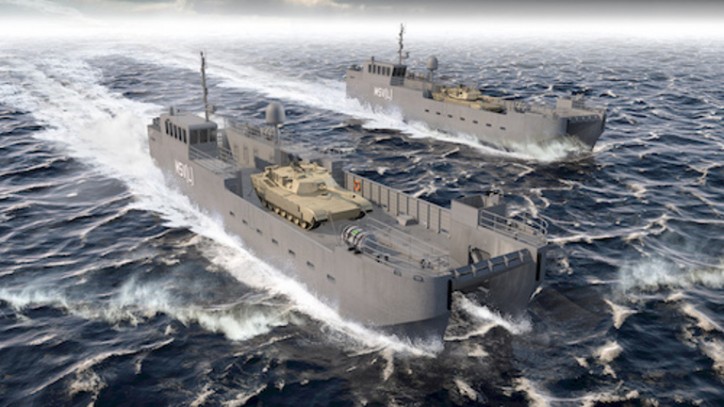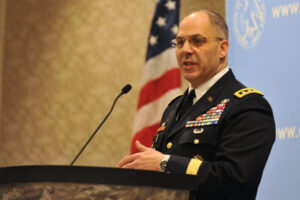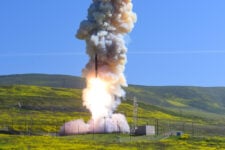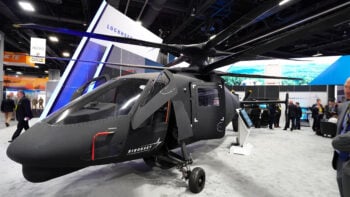
Maneuver Support Vessel (Light)
HONOLULU: Gen. Gus Perna, head of Army Materiel Command, is a brave man. He came to Pacific Command’s AOR and announced he wants the Army to stop building the transport ships and so-called watercraft that could be crucial to any conflict in the Indo-Pacific region.
“I was in a meeting yesterday and I hit the mike and said, ‘I think it’s time for the Army to get out of the boat business,” Perna said at AUSA’s LANPAC conference, filled with representatives of 26 allies and partners from Australia to Vanuatu, many of whom would depend on those ships to carry essential supplies around the region in time of war.

Gen. Gus Perna
“We should not produce the next ship and eliminate the next capability. That is heresy, especially here out in the Pacific. Trust me, nobody hit the mike and said, ‘Brilliant.”
Why would the Army want to do this? It’s simple really: to help pay for the six top modernization priorities. The first one Perna mentioned, the one clearly at the top of his mind, was Future Vertical Lift. “It’s about what do we need and when do we need it,” he said.
The Army builds and operates a range of ships, including the Maneuver Support Vessel (Light), Landing Craft, Mechanized (LCM) and a host of others. His spokeswoman, Kim Hanson, tells us that, “General Perna’s comments about watercraft were not specific to any vessel or program. His recommendation was intended as a potential course of action (emphasis added) to focus funding on the Army’s six modernization priorities.” Last year, the Army awarded Vigor Works an almost $1 billion contract for new MSVs. That’s enough money to attract the hungry gaze of any self-respecting Army procurement officer.
However, the service may find this a tough sell, and the head of AMC seemed to signal that, didn’t he. Even if his bosses approve the move with an eye to the large bills the Army faces to replace its fleet in the out years of the budget, I understand the service has Title 10 responsibilities that may make Congress less than sympathetic to Perna’s plan.
Sydney Freedberg also contributed to this article.
Move over FARA: General Atomics pitching new Gray Eagle version for armed scout mission
General Atomics will also showcase its Mojave demonstrator for the first time during the Army Aviation Association of America conference in Denver, a company spokesman said.


























